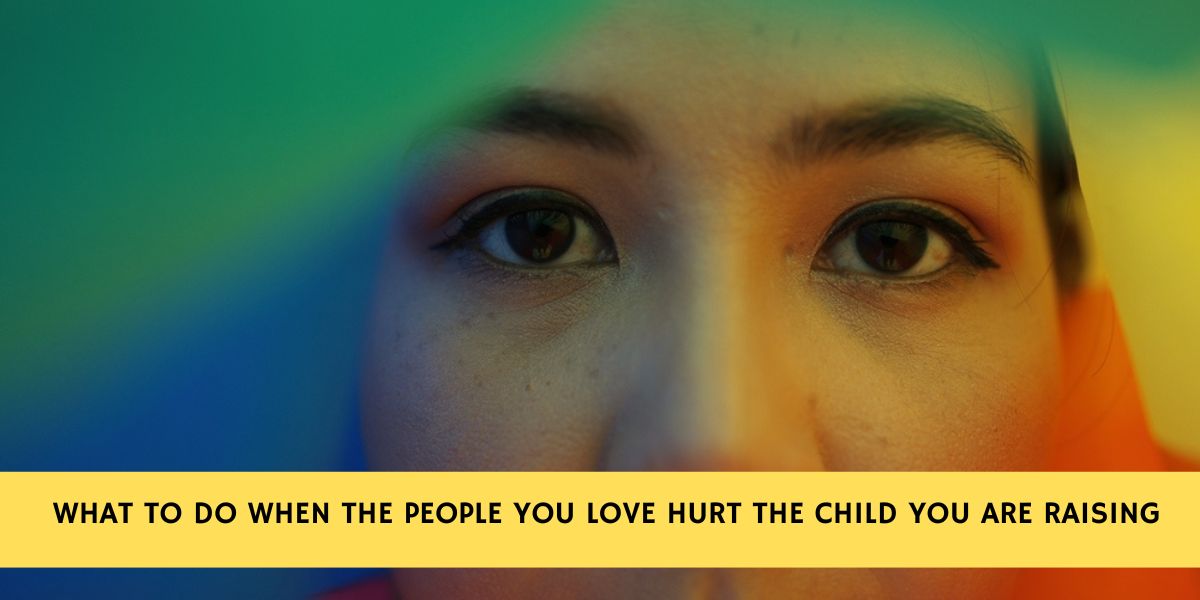When your teen comes out to you, it’s a sacred moment. One that often comes with a shaky voice, a held breath, and a heart hoping—praying—that nothing changes.
And if you’re the parent they chose to tell, it means they believe you’re safe. That’s no small thing.
But what happens when the rest of the family doesn’t feel that way?
What happens when you’re ready to stand in your teen’s corner… and the people who were supposed to stand in yours don’t show up?
That’s when things get complicated.
It’s one thing to wrap your child in love and reassurance. It’s another to explain to Grandma why we don’t make those jokes at dinner anymore.
Or to hear that your sister “just isn’t ready” to have the conversation.
Or to weigh whether your child should even come to the next family event at all.
Let’s be honest: it’s not just your teen who feels the sting.
It’s you too.
You’re the one standing in the middle, holding your child’s truth in one hand and your family’s silence (or side-eyes, or passive-aggressive Facebook comments) in the other.
You’re the one who suddenly finds yourself negotiating birthdays, holidays, group texts, and conversations that used to be easy… until your kid’s identity became the thing no one wanted to name.
And, sometimes the people who said they’d always be there, just aren’t.
So now what?
You can’t force understanding.
You can’t control someone else’s comfort level.
And you absolutely can’t make your teen smaller to keep everyone else comfortable.
But you can show your kid exactly what love looks like, when it’s tested.
Here’s what that might look like
Hold the line, even if it shakes.
If a family member refuses to use the right name or pronouns, or makes “just a joke” that isn’t funny— don’t excuse it. Don’t smooth it over.
Correct it. Clearly and calmly. Because your teen is watching. And in that moment, they’re learning whether you’re willing to stand up for them.
Let your teen set the pace.
Give them the lead and the assurance that you’re following it. Saying “We’re in this together” is good; but, showing your teen that they get to decide who hears their story, and when, is everything.
Try this: “Do you want to tell them, or would you rather I do? Or maybe not at all right now?”
Replace traditions with truth.
If the family group text isn’t safe anymore, start a new one.
If the holiday dinner comes with side dishes and side-eyes, opt out. Or speak up.
Because we don’t keep the peace at the expense of our child’s dignity.
Unless there’s a safety issue involved, asking your child to stay silent sends one loud message: “This part of you is too controversial to mention.”
Remember: boundaries aren’t betrayal.
If a family member refuses to respect your child’s identity, they don’t get a front-row seat to your child’s life.
That’s not cruel. That’s parenting.
You are allowed to say:
“Until you can speak with kindness, we’ll be taking some space.”
Not to be punitive. To be protective.
Here’s the bottom line:
Your teen doesn’t need a room full of applause.
They need one adult who’s brave enough to stand between them and anything that feels like shame.
And yes, that might mean fewer invites.
Smaller holiday dinners.
Harder conversations with the people who raised you.
But it also means your teen gets to walk through the world knowing they were never too much for the person who matters most.
💬 Need help with what to say—and what not to?
Download our free guide: What to Say (and What Not to Say): A Parent’s Guide for Supporting Your LGBTQ+ Teen






































